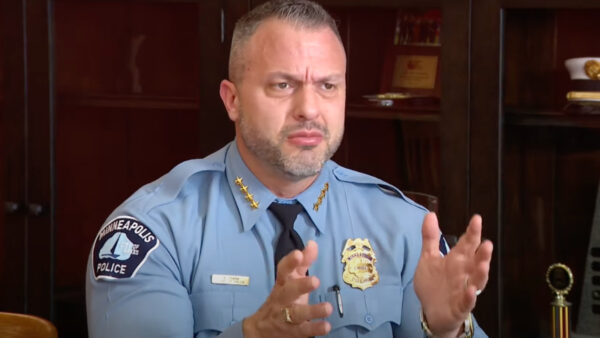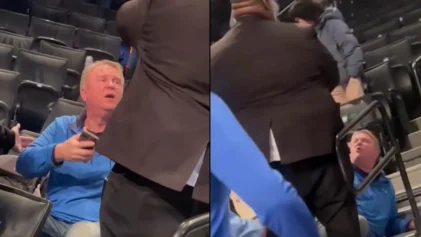Minneapolis Police Department Chief Brian O’Hara says there was no hacking involved with the fake accounts officers created to gather intel on Black organizations.
The Minnesota Department of Human Rights in response to outrage has released a statement clarifying that the police did not wiretap or hack Black people and organizations they targeted online during the George Floyd protests following its scathing report last year that shows the deep-seated racism within the MPD.
O’Hara also claimed the surveillance helps prevent violence
“Police do conduct undercover work, and this is just an extension of that idea into the technological space,” said O’Hara. “There’s no sort of breaking into and trying to interfere or post messages. None of that is happening now.”

The MDHR’s investigation began in June of 2020 and found the agency “surveilled” Black people and Black organizations they “targeted” online in an undercover operation by creating fake accounts on social media.
The accounts were used to spy on the Black community as well as Black organizations while ignoring the accounts of white supremacists, despite a Boogaloo Bois member shooting 13 rounds into the 3rd Precinct with an AK-47.
CBS Minnesota reports that Commissioner Rebecca Lucero is making it clear one year after the MDHR April 2022 report was issued that Minneapolis police did not hack or wiretap those spied on during the undercover operation. The MDHR website also made the distinction.
“With respect to MDHR’s Findings about MPD’s covert social media use, when MDHR described MPD as ‘surveilling’ individuals and groups through social media, MDHR did not use that term to indicate ‘hacking into’ accounts or private messaging systems or ‘wiretapping’ those individuals or groups,” says the website.
“What was meant by ‘surveillance’ was that MPD officers used covert social media accounts to ‘follow’ and ‘engage with’ individuals and groups through their social media accounts. It is common practice for law enforcement agencies to ‘follow’ and ‘engage with’ individuals and groups through their social media accounts to establish a credible undercover social media profile.”
“We don’t have to use the word ‘surveil’ if there’s confusion about that,” said Lucero.
The 72-page report found that the MPD stops, searches, arrests, uses force against and kills Black people and people of color at a higher rate than white people. The investigation also found that MPD leaders and city officials have known about the discriminatory behavior for some time but failed to act “with the urgency, coordination, and intentionality necessary to address racial disparities to improve public safety.”
“The Minnesota Department of Human Rights finds that MPD engages in a pattern or practice of discriminatory, race-based policing as evidenced by: Racial disparities in how MPD officers use force, stop, search, arrest, and cite people of color, particularly Black individuals, compared to white individuals in similar circumstances,” it said.
Additionally, the report cited “MPD officers’ use of covert social media to surveil Black individuals and Black organizations, unrelated to criminal activity,” as well as “MPD officers’ consistent use of racist, misogynistic, and disrespectful language.”
The report studied the agency going back a decade and found some MPD officers called Black people the N-word as well as “monkeys” and “orangutans” while Black women were referred to as “Black b—s.”
Community organizer Mike Griffin was not comforted by the clarification.
“It is trauma that Black people continually experience in this city,” he told CBS Minnesota this week. “Am I being surveilled? Are my friends? Based on what? The trust is already eroded between the Black community and the Minneapolis Police Department.”
Lucero clarified the MPD’s online surveillance operation during a meeting on March 31 after the Minneapolis City Council approved a court-enforced settlement agreement to change police practices.
“The policy change in here covers every single piece from top to bottom,” Lucero said.
The settlement agreement requires the MPD to get prior authorization for any undercover accounts and have all accounts reviewed on a regular basis to ensure they are used legally.
Activists want more information about who was “surveilled” and why.


